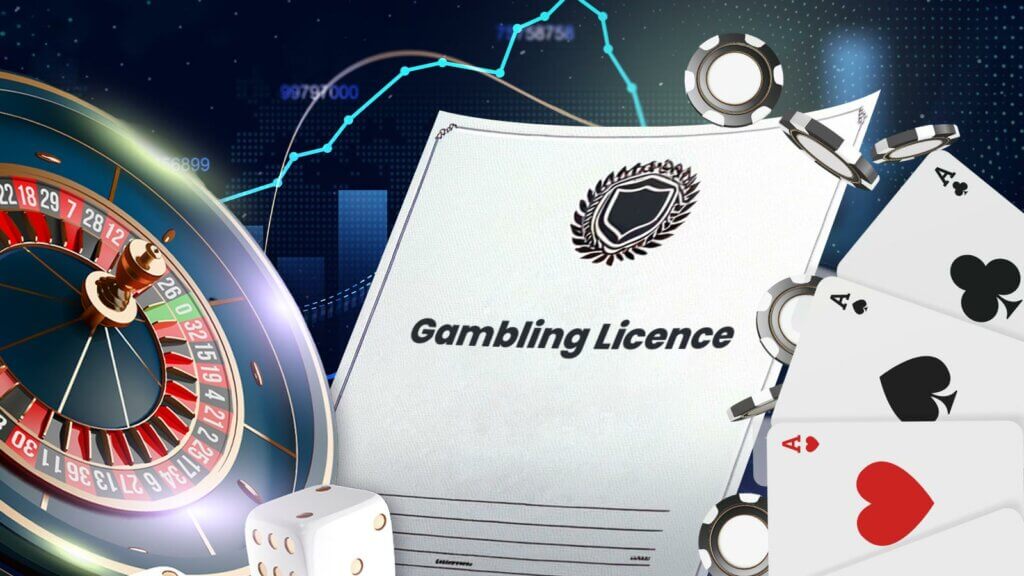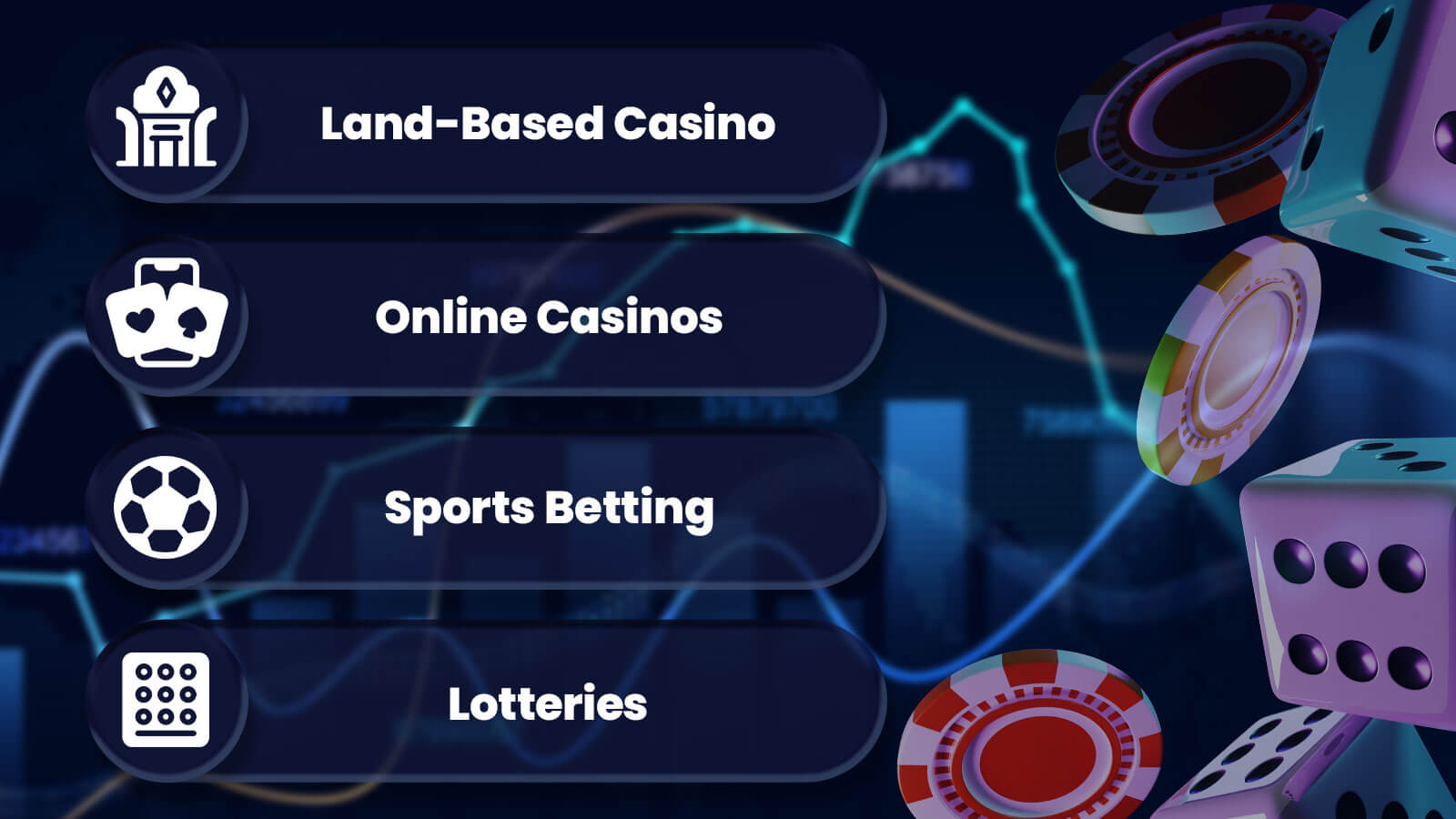The True Cost of a Gambling Licence
KingCasinoBonus receives money from casino operators every time someone clicks on our links, influencing product placement. The compensation we receive does not impact our recommendation, advice, reviews and analysis in any way. Our content will always remain objective, independent, straightforward, and free from bias.

Thinking about starting an online casino? One of the first steps is getting licensed, and it’s not cheap. Let’s break down how much a gambling licence really costs in the UK and other major regions! From application fees to compliance costs and tax obligations, we explain what affects the price and why it varies.
On this page
What is a Gambling Licence?
Gambling licences are important legal permits needed to run casinos and other gambling businesses. They validate your credibility as an operator and guarantee fair gaming and secure payments while preventing fraud, underage gambling, and money laundering.
The global gambling industry was worth approximately $249 billion in 2022. The same year, the gross gambling yield in Great Britain was over £14 billion, up from the previous year’s £12.7 billion. These figures show that obtaining a licence positions you strategically in an industry with great revenue potential.
Types of gambling licences

Land-based casino
- Class I – includes tribal ceremonies and social games involving very small amounts of cash rewards.
- Class II – includes simple games such as bingo or punch boards,. These types of games are played between two or more players rather than in a house or casino.
- Class III – involves commercial casinos which offer conventional games such as slots, roulette, poker, baccarat, etc. These involve the likes of Las Vegas Strips, which offer hotels and resorts along with bustling casinos. These also need a gambling premises licence.
Online casinos
- Online gambling operators usually have licences from popular authorities such as the Malta Gaming Authority, the Gambling Commission of Great Britain, the Government of Gibraltar, or the UKGC.
- Well-known jurisdictions, such as Malta and the United Kingdom, typically have higher licencing costs. Mostly due to their strict regulatory needs and better consumer protection measures.
- Also, countries where gambling is deemed illegal usually have online casinos operating under offshore licences from Curaçao, Costa Rica, etc.
Sports betting
Sports betting options are legal in some countries, while they are banned under federal law in many other geographies. Casinos that have sports betting options usually need additional licences and permissions.
For example, in the United States, the Interstate Wire Act and the Professional and Amateur Sports Protection Act (PASPA) prohibit sports betting in many of the states. So casinos operating in those states would need additional permissions and licences.
Lotteries
Authorities such as the UK Gambling Commission or the Malta Gaming Authority offer licences to operate lottery sites and establishments. The state-run lotteries are usually treated as regular incomes as per the Internal Revenue Service in the U.S.
The income from such lotteries could be waived or taxed based on the state. The privatisation of the lottery has been debated, and most countries don’t support private lotteries, except for charitable fund-raisers.
What Can Affect the Cost of a Gambling Licence?
Numerous factors affect the cost of obtaining a gaming licence, each contributing to the overall cost structure. Here are some examples:
Jurisdiction
Different jurisdictions have varied regulatory structures, and this can lead to differences in licencing fees.
For instance, well-known jurisdictions such as Malta and the United Kingdom typically have higher licencing costs. Mostly due to their strict regulatory needs and better consumer protection measures. These jurisdictions often require detailed documentation, background checks, and ongoing compliance audits, all of which contribute to increased costs.
Type of operation
Business-to-consumer licenses are required for operators that offer gaming services directly to players. These licenses often have higher fees due to the detailed regulatory process involved.
Business-to-business licences, which are necessary for companies providing services to other businesses (like software providers), tend to have different fee structures. They also have different compliance requirements, which impact overall costs.
Scale
The span of permitted activities under a license can also influence costs. For example, a comprehensive license allowing multiple types of gaming activities may be more expensive than a specialised license. This is because larger companies or operators may be subject to more strict scrutiny and compliance requirements.
Duration
The duration of your operation could also influence how much you spend on a licence. Short-term licences for events and tournaments, generally cost less than long term licences.
Legal and Compliance Costs
Legal and compliance costs are another factor that can impact the total expense of obtaining a gambling license. Following regulatory requirements is an important aspect of maintaining a gambling license and can include costs.
MGA charges an approximately €6,000 audit fee, while UKGC’s compliance fee varies. Maintaining a gambling license also includes hiring legal and consulting professionals.
The Cost of Gambling Licenses Around the World

The overall licensing cost is an aggregation of multiple factors, including
- Application fees
- Fees for licenses
- company registration, paperwork, legal fees, policy compliance
- RNG and RTP certificates, AML certificates, etc.
- Taxes and levies
- Operational and compliance costs, including renewal fees, auditing fees, annual fees and so on.
For example, the UKGC has multiple subheads, which include Application Fees, Annual License Fees, Taxes on GGR, etc.
| Jurisdiction | Approximate License Fees | Taxes on GGR |
|---|---|---|
| Curacao | 18,000 – 38,000 EUR | 0% |
| UK | £2,556 – £471,142 based on turnover in Sport betting | 21% Taxes on GGR |
| Malta | 35,000 – 65,000 EUR | 5% GGR |
| Costa Rica | 9,000 – 16,000 EUR | 0% GGR |
| Kahnawake | 21,000 – 30,000 EUR The application fees of US$40,000 is usually charged and includes first year license | 0% GGR |
| Greece | Casino License – €2 million sports betting license – €3 million | Taxes on 13% GGR |
| Antigua | $100K | Taxes on 3% GGR |
| The Isle of Man | 25,000- 50,000 EUR | |
| Montenegro | €25K for first year + 15K annually | Taxes on 9% GGR |
| Panama | $40k first time + $20K per year | Taxes on 5.5% GGR |
What is the Application Process?

Jurisdictions that have an easy application procedure may have fewer fees since it takes less time and money to review applications. On the other hand, applications are typically more expensive in areas with detailed documentation work, thorough background checks, and protracted approval periods.
For example, Curaçao is known for its streamlined application process, which often takes 7 to 10 weeks. In comparison to Curaçao, the licensing procedure for Malta can take longer—typically several months.
- Application fees are typically paid when submitting an application for a gambling license and can range from a few hundred to several thousand dollars, depending on the jurisdiction.
- Legal and compliance costs are another factor that can impact the total expense of obtaining a gambling license
- The overall cost of compliance may increase in certain jurisdictions if taxes are applied to gaming profits.
The pre-requisite documents needed to apply for a license usually vary depending on the country and jurisdiction. Some of the essential documents that are usually needed are as follows:
- The application should include a Memorandum of Association and copies of software agreements
- Business plan, description of games, and RNG certificates
- Proof of no criminal record
- Copies of passports of directors, business owners and key directors
- Address proofs using copies of utility bills and bank statements
- AML-CFT policy
Are There Extra Costs to Maintain a Gambling License?
Sometimes, yes. The license cost and recurring maintenance cost usually vary depending on multiple factors:
- The licencing fees can be based on factors such as the size of the operation or the gross gambling yield (GGY). High tax rates on gross gaming revenue (GGR) are applied in some areas. It is noteworthy to mention that while UKGC and MGA levy a 21% and 5% tax on GGR, Kahnawake and Anjouan impose a 0% gaming tax.
- The Random Number Generators (RNGs) algorithm should be compliant with the latest technical standards. The RNG should be uniformly distributed over the entire output sampling while operating a lottery or virtual event. It is important to produce a RNG certificate while applying for a licence. This ensures that the casino games are fair and the outcomes of the games are actually random. This instills confidence among players.
- The casino should abide by the policies of responsible gambling. Helping players deal with gambling addictions. Casinos usually have partnerships with forums such as Gamban and GamCare or use self-exclusion tools such as Betfilter, NetNanny, Gamblock, and others.
- Casinos should also be vigilant about the standards needed to maintain their licence. For example, failing to comply with the guidelines for anti-money laundering (AML) can cost a fortune and mark the casino as “unsafe.” For example, two Las Vegas casinos paid a $7.5 million fine for failing to comply with the guidelines of Bank Secrecy Act (BSA) over alleged anti-money laundering (AML).